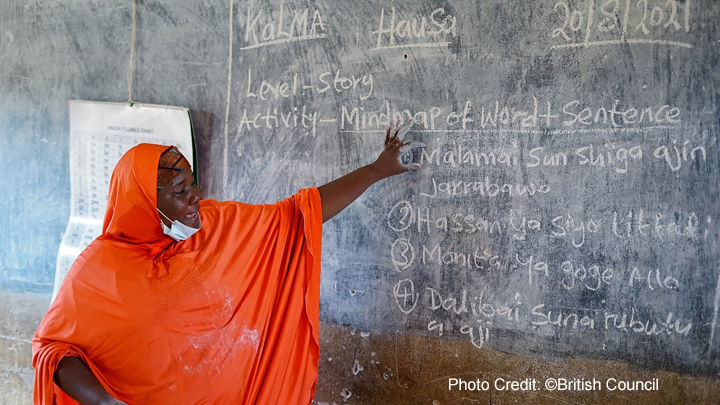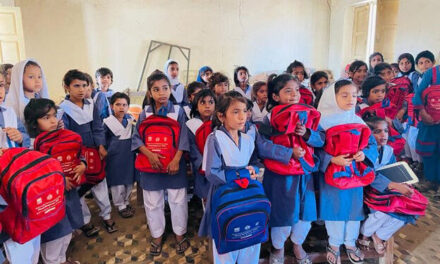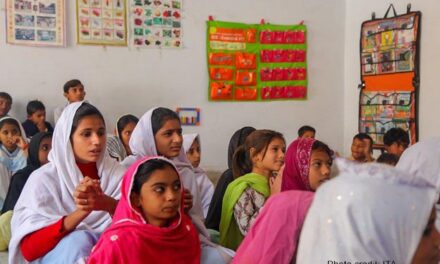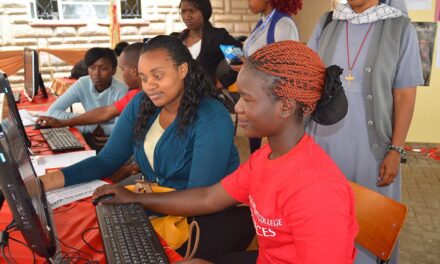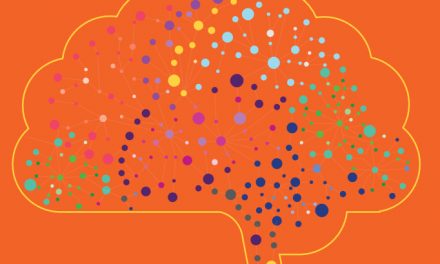This blog was written by Laela Adamson, University of Strathclyde; Saalim Koomar, Jigsaw Education; Amy Lightfoot, British Council; and James Urwick, Uwezo Uganda. It primarily draws on the UKFIET-British Council event on “Language and Its Critical Role in Education and Training Around the World.” The authors have all made equal contributions, and their names are simply listed in alphabetical order. Please note that all contributions are from the named individuals and do not necessarily reflect the views of the organisations they work for.
Language as a critical factor in socio-emotional learning
The multiple reasons for developing children’s literacy and oracy skills are well documented: being able to communicate with others is fundamental to the human condition. However, in too many contexts, there is a mismatch between the language of schooling and the language(s) children use at home. When choices around language of learning and teaching (LoLT) are made, there is often little attention paid to the impact this may have on the learners’ socio-emotional development – despite the fact that there is increasing focus internationally (and post-pandemic) on ensuring there are aspects of the curriculum which foster wellbeing and socio-emotional learning (SEL).
Evidence tells us that language development in general – particularly at an early age – is linked to children’s socio-emotional development, which in turn affects the development of their overall maturity, relationships, self-esteem and lifelong wellbeing. There is also some evidence (though from high-income countries and of varied quality) that support for SEL has benefits for academic learning outcomes.
When the LoLT is one a child feels confident to use, and which reflects their reality at home or in their community, this supports the child’s development of identity, confidence and belonging. When there is a different LoLT to the home language of some or all of the children, there are strategies that can be implemented by the teacher, parents and wider school community to reduce the risk of damaging the socio-emotional development of the learners.
The risks are real: not only does research provide evidence of students’ feelings of shame and fear when faced with learning and contributing to classes in an unfamiliar language, but also teachers report feelings of frustration and guilt when deciding whether to support their students’ learning by using their mother tongue. The resultant learner drop out and teacher resignations can significantly deepen the learning crisis.
There are initiatives in a range of contexts to develop the use of multilingual approaches that retain opportunities for learning additional languages, but also recognise the crucial role of familiar languages in all aspects of the learning process. There is a growing body of evidence showing that the integration of authentic literature in language teaching can be very formative for SEL. To quote Irma-Kaarina Ghosn (2013), ‘Children’s literature not only enhances language learning … but it can also nurture moral reasoning skills, emotional intelligence and empathy, as well as help children work through difficult issues’ (p. 39). Technology also has a potential role here – improved access to resources in familiar languages can build confidence around multilingual practice and freedom of expression.
Taking action
It is clear from our research and professional experience that a greater focus on the SEL dimensions of education requires engagement with language issues, and vice versa. The inclusion of familiar languages will support socio-emotional learning and aspirations for positive school environments, such as those set out in UNICEF’s guidelines for ‘child friendly schools’.
We also note that language learning often focuses on skills for reading and writing. Increased space for oral and aural communication practice would support both language development and critical cross-cutting competencies in socio-emotional, cognitive and behavioural dimensions of learning, as highlighted by the UNESCO roadmap for Education for Sustainable Development.
Furthermore, there are specific actions that we believe stakeholders can consider when designing and implementing education-focused initiatives. Underpinning all of these is the call to reflect on which languages we are using throughout all education-related activities.
- Acknowledge language as a key factor in the work that we do – ask questions about how language is being considered in projects and initiatives.
- How can language be factored into contextual analyses of projects? (e.g. language mapping, analysis of language-in-education policy dialogue)
- How can light-touch, practicable adjustments be made to ensure language is considered throughout project activities? (e.g. see Developing a language policy for research in LMICs)
- Involve project participants and the wider community in discussion of language-related aspects at all stages and consider which language(s) to use to communicate about the project – including key evidence – so that it is accessible to a range of stakeholders
- What languages are we communicating in?
- How can we engage parents more directly in educational programmes to discuss language issues?
- What awareness do people have about the relationship between language and socio-emotional learning? To what extent is this included in teacher education?
- How does language feature in discussions around education / curriculum / resources relevance and appropriateness?
- Work together to develop a more consistent approach to gathering language-related data/information
- How can we add additional layers to our data collection to explore language use beyond simple demographics? Can we develop shared tools? (e.g. see CLEAR global data on language)
- Have we considered language as an explanatory factor for the problems we are engaging with, e.g. drop-out, poor learning outcomes, etc.?
By centering a language-focused approach throughout all of our work we hope that this would support not only the understanding of the importance of language (and its complexities), but also a more celebratory engagement with language as a source of richness and pride which in turn supports the socio-emotional development of all members of the community.
—————-
Blog series
This is the third in a blog series focused on exploring issues of language in education. The series follows a workshop organised by UKFIET and the British Council in March 2024 and aims to highlight challenges and opportunities relating to the four main themes discussed.
Others in the series include:
Beyond the Cursory: Creating a Space for Sustained Dialogues on Language in Education
Why is language critical in education during crises?
The impact of the language of instruction on foundational literacy and transitions
Addressing the neglected area of language(s) in assessment and evaluation

